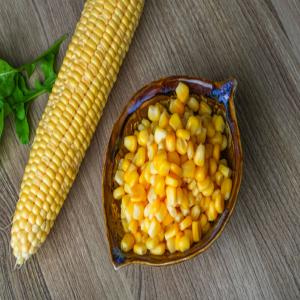Health Benefits of Adding Corn to Your Diet

Corn, also known as maize, is more than just a staple crop or a movie-time snack. It is a versatile grain packed with nutrients that can benefit your overall health in multiple ways. From aiding digestion to improving eye health, corn is a powerhouse of essential vitamins, minerals, and antioxidants. Whether you consume it boiled, roasted, or as part of a dish, incorporating corn into your diet can be a smart and healthy choice.
Let’s explore some of the key health benefits of adding corn to your daily meals.
1. Rich in Nutrients
Corn is a good source of essential nutrients such as vitamin B-complex (especially thiamin and folate), vitamin C, magnesium, and iron. These nutrients support the body's metabolism, help maintain healthy cells, and boost your immune system.
2. Supports Digestive Health
Corn contains a high amount of dietary fiber, particularly insoluble fiber. This type of fiber promotes regular bowel movements, prevents constipation, and supports a healthy gut. It can also help manage weight by keeping you fuller for longer.
3. Good for Eye Health
Yellow corn is rich in carotenoids like lutein and zeaxanthin, antioxidants that are known to improve and protect eyesight. These compounds filter harmful blue light and may reduce the risk of age-related macular degeneration and cataracts.
4. Boosts Energy Levels
As a starchy vegetable, corn provides a healthy amount of complex carbohydrates that act as a natural energy booster. It’s especially beneficial for active individuals, athletes, or anyone needing sustained energy throughout the day.
5. May Help Control Blood Sugar
Despite being a carbohydrate-rich food, the fiber in corn helps in slowing down the absorption of sugar into the bloodstream. This helps in managing blood sugar levels, making corn a suitable choice for people with diabetes when consumed in moderation.
6. Supports Heart Health
The presence of fiber, magnesium, and certain plant compounds in corn can contribute to better heart health. Corn oil, when used in moderation, may help reduce LDL cholesterol (the bad kind) and support healthy blood pressure levels.
7. Gluten-Free Grain Option
Corn is naturally gluten-free, making it a safe and nutritious choice for individuals with celiac disease or gluten intolerance. Cornmeal, corn flour, and other corn-based products can be a great alternative to wheat-based items.
How to Add Corn to Your Diet
● Enjoy corn on the cob with a dash of lemon and salt
● Add boiled corn to salads and soups
● Make homemade corn chaat or corn soup
● Use cornmeal for baking or making pancakes
● Add sweet corn to curries, stir-fries, and pasta
Final Thoughts
Corn is a simple yet nutritious food that can easily be integrated into various dishes. Its rich nutrient profile, combined with health-promoting properties, makes it a great addition to a balanced diet. So, the next time you’re planning your meals, don’t forget to add a serving of corn – your body will thank you for it.
TAGS : health benefits of adding corn to your diet, corn , diet, health benefits











